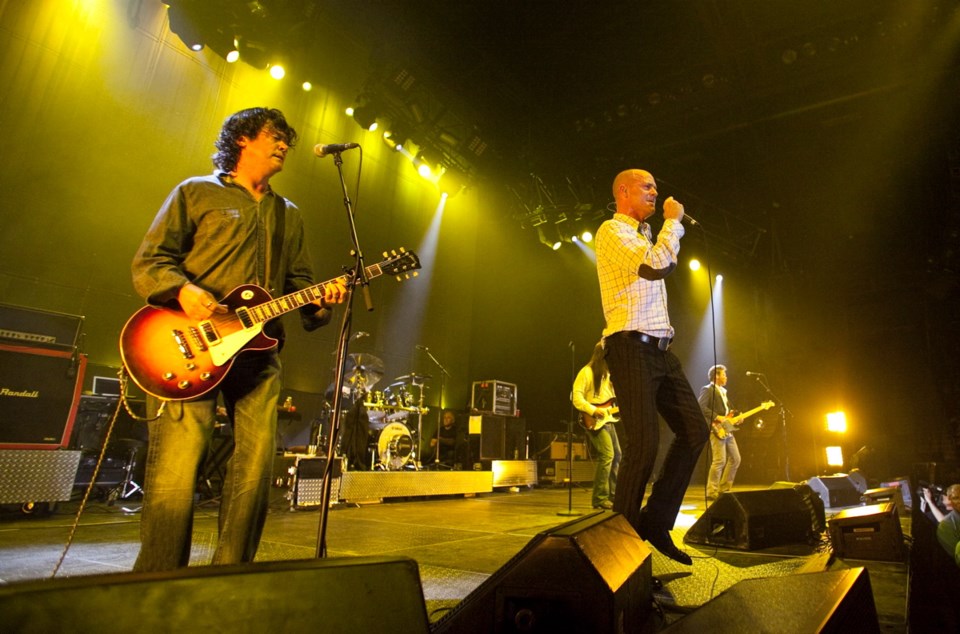 The city, the province and the country spent much of Friday seething with frustration and resentment over the Tragically Hip tickets debacle.
The city, the province and the country spent much of Friday seething with frustration and resentment over the Tragically Hip tickets debacle.
It was nothing out the ordinary, though. Regular people always get shafted over hot tickets. The system has been rigged against the common herd for years. And all the technology advances over the years have only made it worse.
The poignancy behind this particular tour — announced a few days after a critical cancer diagnosis for lead singer Gord Downie — heightens the outrage. But that pervasive feeling of getting conned is a fact of life after any major tickets go on sale. Tickets rank with the stock market and gas prices as commodities where everyone knows the fix is in, but nobody knows quite how.
The former CEO of Ticketmaster, Nathan Hubbard, wrote an explanation that sheds some light on it. The piece, noticed by CKNW’s Shane Woodford, was posted on theringer.com just as the Hip concert tickets were purportedly “released.” It’s called: “Why you can’t get a ticket to the NBA Finals … and every other major event on the planet.”
Hubbard ran the dominant ticket company in the world for three years and confirms what we all know: “The system is almost sadistically stacked against [us].”
Citing a New York attorney general’s report and a British government inquiry into the global scam, along with his own experience, he made the following points:
• Tickets never go on sale when you think they do. There are pre-sales to companies that give their customers advance access and assorted other insiders well before general release. And the pre-sales are infiltrated by ticket brokers who use fake accounts to game the system.
• You probably can’t get a good seat. Even before the pre-sales, rows and rows of good seats are held back. The New York report found less than half of all tickets go on sale to the public. At two Katy Perry and Justin Bieber shows, just 15 per cent of the house was made available to the public. The artists and the entertainment industry all have traditional calls on the good seats, and a lot of them find their way to scalpers’ sites.
• It makes no difference to the artist. The bigger draws are guaranteed a set amount regardless, and it’s usually more than the combined face value of every seat in the arena. That’s incentive for the promoter to sell some of the seats at higher prices directly to scalpers. That allows the purported ticket price to appear reasonable, and the promoter to cash in by recouping more value.
Says Hubbard: “That means the artist is either directly complicit, or taking a massive cheque for the performance while looking the other way.”
• Attack of the bots. Hubbard says by the time the public is invited to buy, most seats are gone. So it’s no surprise the Hip sold out in a moment or two. And that general sale for most concerts is overrun in nano-seconds by computer programs written by ticket brokers. We were all competing Friday morning against countless robots much faster than us. Other bots will roam the web looking for other tickets, in case new bits of inventory get released.
Hubbard said: “It’s like your dog sitting under the table, waiting for a little of your sandwich to fall. It’s gone before it hits the ground. You don’t have a chance.”
As for solutions, they revolve around the lack of transparency and the tradeoff between pricing and availability.
He suggests an honest (for a change) account of how many tickets will be sold. That would let fans know the odds going in.
Asking prices need to be rethought, too. In the Tragically Hip’s case, the face value of Victoria tickets was ludicrously below their real value as set by supply and demand. That is made clear by scalpers’ asking prices today, which are in the stratosphere.
Hubbard said any time that happens, the secondary market materializes out of thin air. It’s capitalism at work. It can’t be stopped, but it could be contained.
Setting prices at their real value would likely curb the multiple re-sells at higher values. Eliminating transferability would also dampen down the after-market.
Just So You Know: If you did get tickets, enjoy the show. Or maybe call me.



